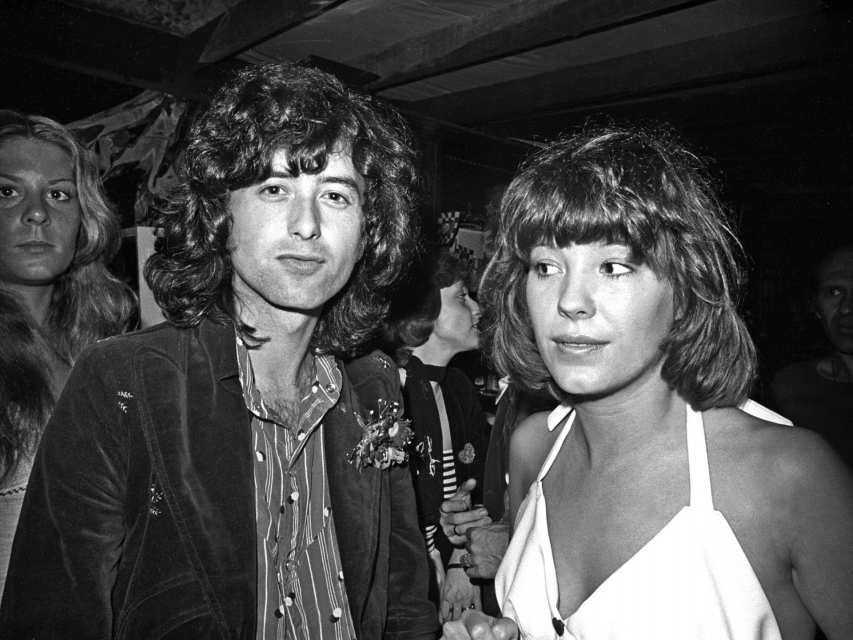Visiting “I’m With the Band: Confessions of Groupie” 40 Years Later
Warning: This blog discusses issues that might be sensitive to some readers.
I spent a good deal of my winter break reading books by Boomers in the entertainment industry. It started with a tryst with I Was Saved by the Bell by teenage sitcom producer Peter Engel. That book is barely worth mentioning, but it led me down a rabbit hole of reading autobiographies and memoirs by people that, frankly, are not particularly famous. “Well-known” would be a better descriptor. That’s how my public library came to recommend the book I’m With the Band, written by legendary groupie Pamela Des Barres. This book was a refreshing read after the hot sack of garbage by Peter Engel, but it is not without its issues.
I’m With the Band: Confessions of a Groupie is a charming autobiography written by Pamela Des Barres, a famous groupie who was primarily active in the 1960s and 70s. She ran with rock legends like Led Zeppelin, The Who, and the Burrito Brothers and details various romantic and sexual escapades she had with Mick Jagger, Jim Morrison, and Jimmy Page. While she was vying for the attention of rock stars and country stars, she also was setting fashion trends throughout LA, dancing whenever and wherever she could, and working hard to become a Hollywood actor. She was one of the founding members of the GTOs (Girls Together Outrageously… Outwardly… Orally… The ’O’ was whatever you wanted it to be. This wouldn’t be an I’m With the Band review if I didn’t make a list of ‘O’ words with ellipses between them), a girl group spear-headed by musician Frank Zappa. Despite all her accomplishments, most reviews focus on her sex life, lending the book to have a reputation as raunchy, sexy, flirty, and bold.
Don’t get me wrong, the book is all those things at times. Upon its release in 1987, Barres’ candid honesty about sex drew criticism from readers and alike. Critics treated her like an irrational child, criticized her emotional and exaggerated writing style, and revelled in the sexiness of the book. According to the author, many female readers guffawed at the book, slut-shaming her, and calling the book a danger to society, in typical 80s fashion. One scathing review written in 1987 by Andrew Ferguson for the Wall Street Journal described the book as a “vulgar kiss-and-tell” in which Des Barres is continuously taken for granted and taken advantage of by men in the rock n’ roll scene, which is compounded by the irony of her love, respect, and infatuation for these men who do not think much about her. Reviews such as this and the general regard of the book as raunchy, steamy, vulgar, or sexy fail to capture the true essence of this biography: the story of a vulnerable young girl desperately searching for her place in life and navigating an impossibly huge list of expectations. She was constantly stressed about what was expected of young women during the 60s and 70s, writing multiple times that she wanted to be as small as possible, super feminine, and lamented about “running out of time” to have a husband and children at a whopping 25-years-old. This conflicted multiple times with her desire to have fun, frequent, wild sex and express herself fully.
Ferguson’s review was somewhat correct: she dedicated her life, body, and soul to men who often did not care about her in the romantic way that she wanted, and she was frequently cast aside throughout the process. However, this review will not criticize her sexuality—she is allowed to want sex, however much or little she wants it, and I have a lot of respect and admiration for a person who fearlessly goes after what they want. The problem becomes when people take advantage of people like Des Barres. This presents the glaring issue I have with I’m With the Band. It shouldn’t be a secret at this point that the rock scene in the 1960s and 70s had a massive issue with sexual abuse and dubious consent. Many groups during Des Barres’ life were literally children, often between the ages of 13-16, and in I’m With the Band Des Barres mentions groupies that were 13 and 14. Two of the men she has been in a relationship with, Mick Jagger and Jimmy Page, both have allegations for sleeping with minors. Famous people Des Barres hung around with, like Roman Polanski and Vito Pauleskas, were arrested for child sexual abuse.
I’m With the Band left me feeling like a witness to a crime that nobody got punished for. I left the book feeling all kinds of complicated—it was like watching an abused person abuse other people. Most of all, it made me angry, angry enough to sit down and write a review for a book that is 40 years old. I wouldn’t have written this if I saw any discussion around this topic about the book. Most other reviews slutshame Des Barres or praise the book for allowing the reader to have an insight into the personal lives of rock stars. I do not want this book to go down in history like that. When predators like Pauleskas are allowed to go one with their careers unscathed, we as a society have failed his victims and have let people like him get away with their crimes. The reality is that I’m With the Band tells the story of children who were abused in the rock scene from the point-of-view from a woman who was a child abused in the rock scene. Within its pages are stories that should have been used in courtrooms to bring justice to children, mixed in with this absurd, dream-like life full of music, film, and celebrities. The book romanticizes the life that Des Barres led. I think it’s about time to stop viewing this era through nostalgic rose-colored glasses and putting these artists on a pedestal that they frankly do not deserve. People in the rock scene routinely took advantage of women and children, creating a predatory music scene that openly welcomed sexual relationships with children.
This book is still highly regarded today by teenagers who tag their selfies with “#coquette” or “#lana del rey,” and that scares me. I hope that children and teenagers sexually and romantically involved with grown adults can escape that situation and know that it is not normal or acceptable for adults to be attracted to children. As I have learned in my own life, there is a reason people like that don’t have partners their own age—and you shouldn’t trust them. In any relationship, regardless of age, there should be equal exchange and respect, and constant consent. Don’t get held up on people that don’t respect you, don’t ache for love from people that use you. You are worth more than your body and your looks. Women, you are worth more than your femininity or your sexuality—you are a human being.
In the end, there is a lot to respect about Des Barres. I admire her dedication, creativity, outgoing personality, and fearlessness. I was delighted by the fangirl stories she told and found myself relating to her often throughout the book. But my biggest feeling around the book is sadness and disappointment. I wish better for the young girl she was, and wish the world had more opportunities for women like her. I wish the 25-year-old in the book knew she was worth more beyond her looks, her body, and the expectations of domestic housewife life. I wish she and every young girl out there in a similar position could be free, in the biggest sense of the word. I wish that the children abused in this book got any justice for what happened to them, instead of their abusers being lifted to music god status in the decades following their abuse. The best thing we can do as music fans is hold predators accountable and never make excuses for their actions. Hopefully, this review can play a small part in that.





